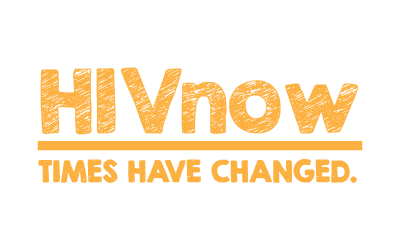Is PrEP Right For Me?
Use this information to help decide if PrEP is right for you and which method to go about taking it.
Daily (one-a-day pill):
Pros:
- Tried and true. This is the oldest form of PrEP medication for HIV and therefore the most common and most studied. People trust this form of taking PrEP.
- It continues to work for cis gender men even if a dose is missed.
- Provides protection on an ongoing basis; you don’t need to coordinate taking the medication in conjunction with sex since it’s always in your system and always protecting you from HIV.
Cons:
- Even for people who have a routine, it’s pretty easy to miss a dose here and there. These medications work best if taken consistently.
- Some people have trouble swallowing a pill.
- Short-term side effects like nausea and digestive issues can happen in a minority of people (lasting one to two weeks at most), in rare situations this can prevent some people staying on PrEP. The chances of side effects with DESCOVY are even less than other drugs for PrEP.
- Long-term side effects such bone density loss or kidney problems occur in less than 2% of people taking Truvada (and it’s equivalent generics). With DESCOVY, fewer than 1% of patients experience kidney issues, and none reported effects on bone density. These long-term side effects are one of the reasons that people are monitored when they are on PrEP. Once PrEP is stopped, studies have shown that kidney function and bone density return to pre-PrEP levels.
PrEP on Demand (aka 2-1-1; Taking PrEP for a short period when sex happens):
Pros:
- Useful for people who don’t want a daily regimen and only need protection periodically. With this method, you take two PrEP pills together (tenofovir DF/emtricitabine 300/200 mg) 24-hours before having sex, one pill the next day and one pill the day after that. (i.e. One pill daily until 48 hours after last sexual activity) [1]
- Fewer pills means less chance to forget/miss a dose.
- Often much cheaper to get 4 PrEP pills than repeating monthly prescriptions for daily pills.
- If the person interested in PrEP has kidney function issues alPlease ready – PrEP on demand may be a better option for their kidneys since it involves taking fewer medications.
Cons:
- PrEP on demand is only effective if taken before and after sexual activity. There is no ongoing protection against HIV. An unplanned sexual encounter would not have any protection against HIV when you haven’t had a chance to take PrEP medications ahead of time.
- It might not be as effective as taking PrEP daily.
- There is much less protection if you forget to take it before or after sex. There is less room for error with this method.
- Some providers are more hesitant to work with you around this method – so it is more limited in terms of where to get it.
- Short-term side effects (such as nausea) could show up every time you reintroduce the medication to your body; and as result it can stop some people taking their PrEP on demand properly or ruin having sex because the person feels too sick. (Pharmacists report they rarely see this.)
- People who have vaginal or front hole sex should not use PrEP on demand. (It takes longer for the drugs in PrEP to get into vaginal/front hole tissue.)
-DESCOVY is not prescribed for PrEP on demand use; only Truvada and its generic equivalents have been used this way. - On demand has not been studied adequately for HIV protection from sharing syringes.
Injectable PrEP (not yet available in Canada):
Pros:
- One injection every two months vs. a pill every day leaves less room for missed doses. Higher adherence means better results.
- Since an injection interacts less with the digestive system, digestive side-effects are significantly reduced.
- An injection done at a clinic is more discrete than daily pills (consider you have to go regularly to get prescription refills, you have to store the pill bottles, whereas there is no packaging or waste with an injection).
Cons:
- Some people don’t like needles, and prefer pills.
- Soreness at the injection site can last for days which can deter some people.
- This can’t be administered by yourself and must be done at a clinic by a physician.
No PrEP:
PrEP is recommended for anyone who is at risk for HIV. Some people, however, feel they don’t fall into this category due to being in a monogamous relationship; having no or infrequent sexual activity; or feeling other measures such as condoms are enough protection, among other reasons. Of course, this means you have no protection for any unexpected exposure to HIV. This option requires no prescriptions, no payments, and no medication to remember and may be right for you if you feel you’re not at risk.
Foot note:
[1] Canadian Guidelines on HIV PrEP and nPrEP. (version 2.1) Darrell H. S. Tan, Mark W. Hull, Deborah Yoong, et al. November 13, 2017. p 10.
What is PrEP?

Is PrEP right for me?

HRT (GAHT) & HIV

Paying for PrEP

Private Insurance & PrEP

Getting PrEP

